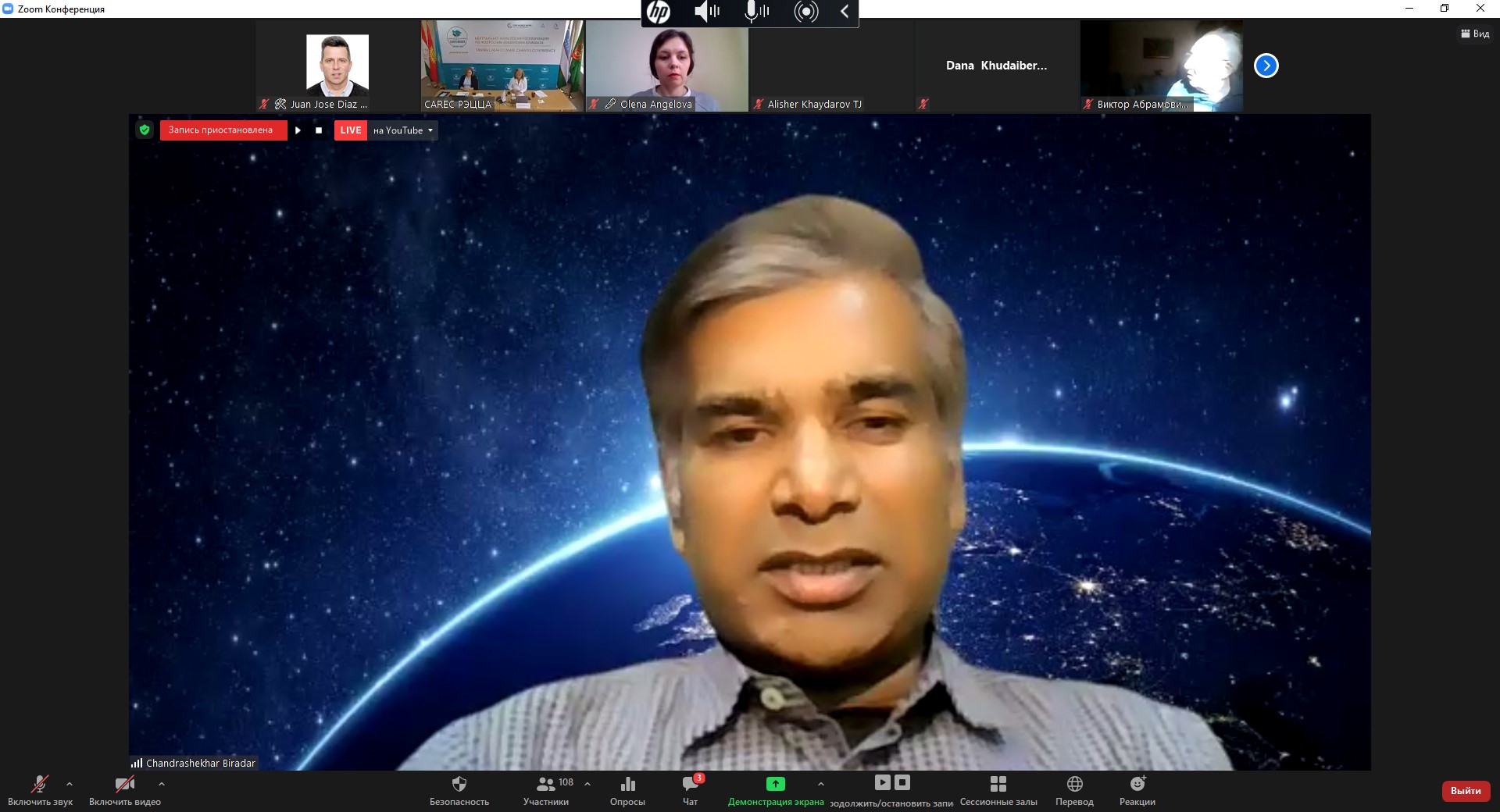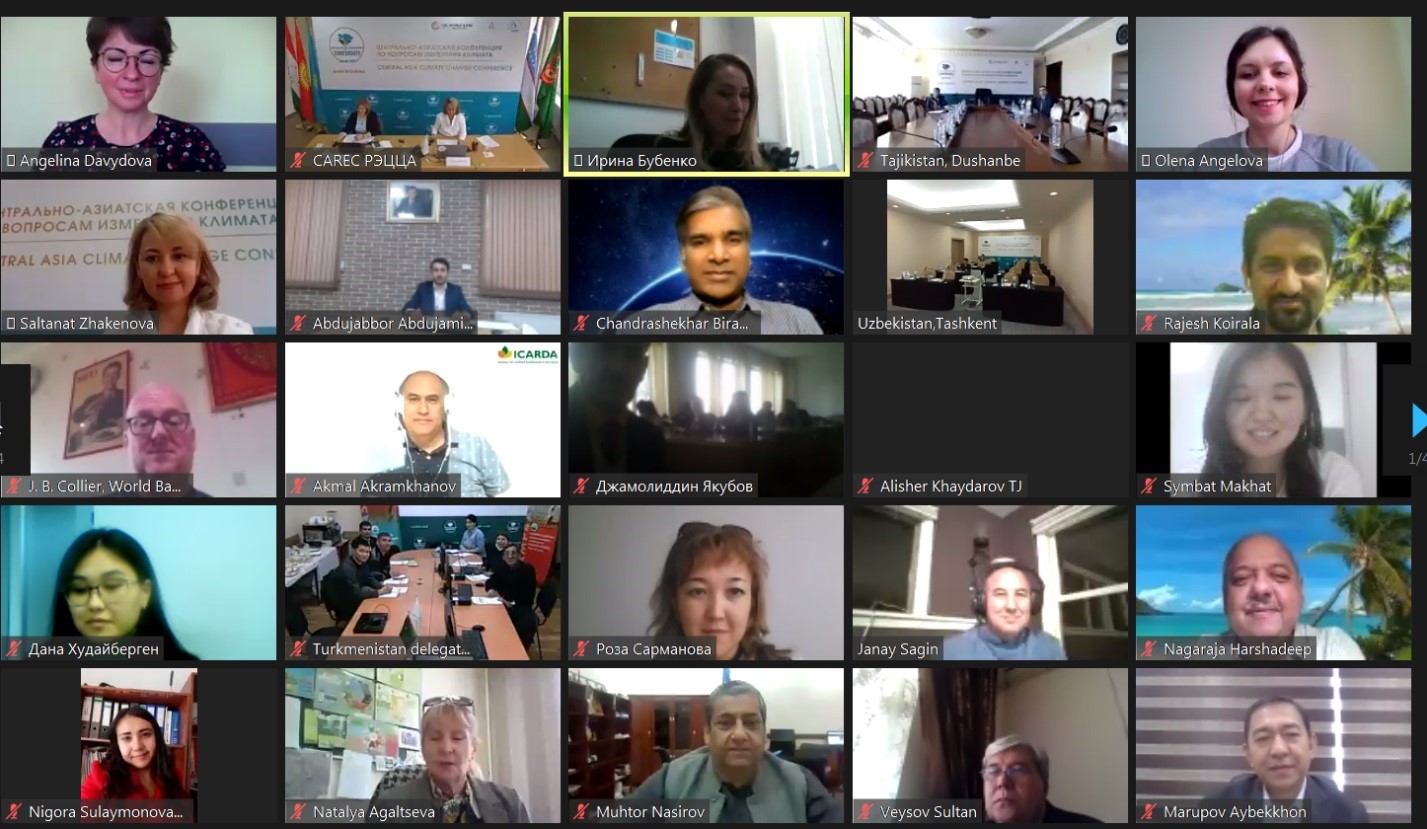
On October 21, 2020, the participants of the third Central Asian Conference on Climate Change (CACCC-2020) discussed the issues of climate-related information.
One of the main results of the Climate Adaptation and Mitigation Program for Aral Sea Basin (CAMP4ASB) project implemented by the Regional Environmental Center for Central Asia (CAREC) with financial support from the World Bank is the development of the Central Asian Climate Information Platform (CACIP). The information platform's main purpose is aimed is to help stakeholders to access, analyze, and visualize public-domain data to support improved awareness, assessment, and decision support. This is expected to make available comprehensive and up-to-date relevant data and information, linking with high-quality datasets (including time series and spatial information) from global, regional, and local sources, provide analytical tools and interfaces for the visualization and interpretation of data and information (e.g. mapping tools to layer data and map hotspots and areas at risk, screening tools, etc.).
Dr. Chandrashekhar Biradar, Principal Scientist and Research Team Leader, ICARDA, presented the Central Asia Climate Information Platform to the participants of CACCC 2020. In his presentation, Mr. Biradar noted that the amount of data available online with open access is growing exponentially. This, in turn, requires new innovations and strategic approaches to maximize and leverage the capacity. So, Mr. Biradar briefly introduced CACIP as a tool that draws in public data from many local, regional and global sources. Using the built-in tools, you can process the data according to your needs. In particular, you can visualize information, make multi-layer maps with layers based on different parameters, data for different periods of time, etc. The platform is tailored made for the specific needs for climate data of various target groups, including decision-makers, researchers, trainers, farmers, citizens.
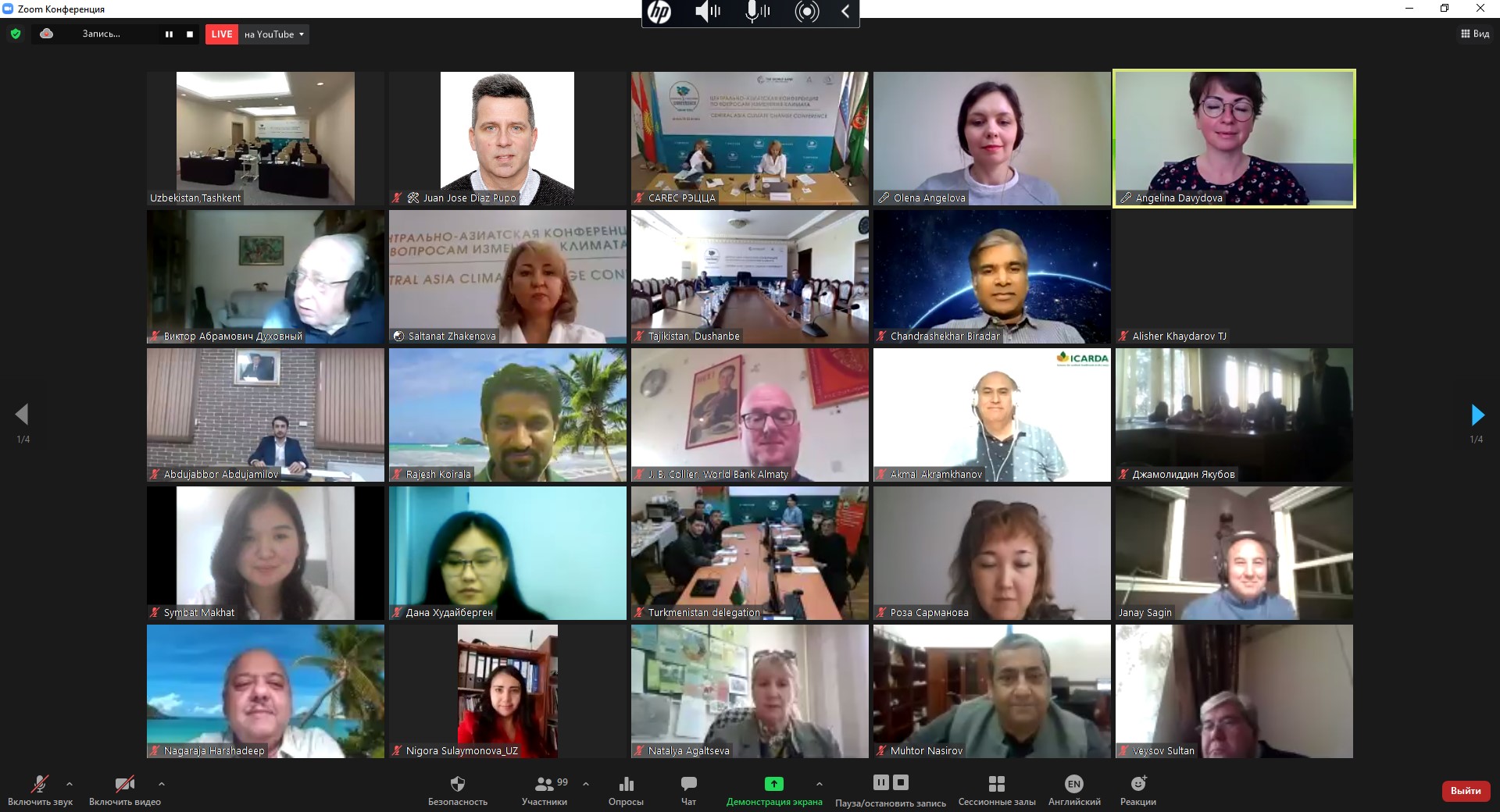
The World Bank, being the cutting edge of international climate finance in developing countries, is actively promoting access to climate data at the global level. A tool for working with such data is the World Bank's Climate Change Knowledge Portal. The portal forecasts data on climate change impacts and vulnerabilities to its consequences of a specific country, region or watersheds you need.
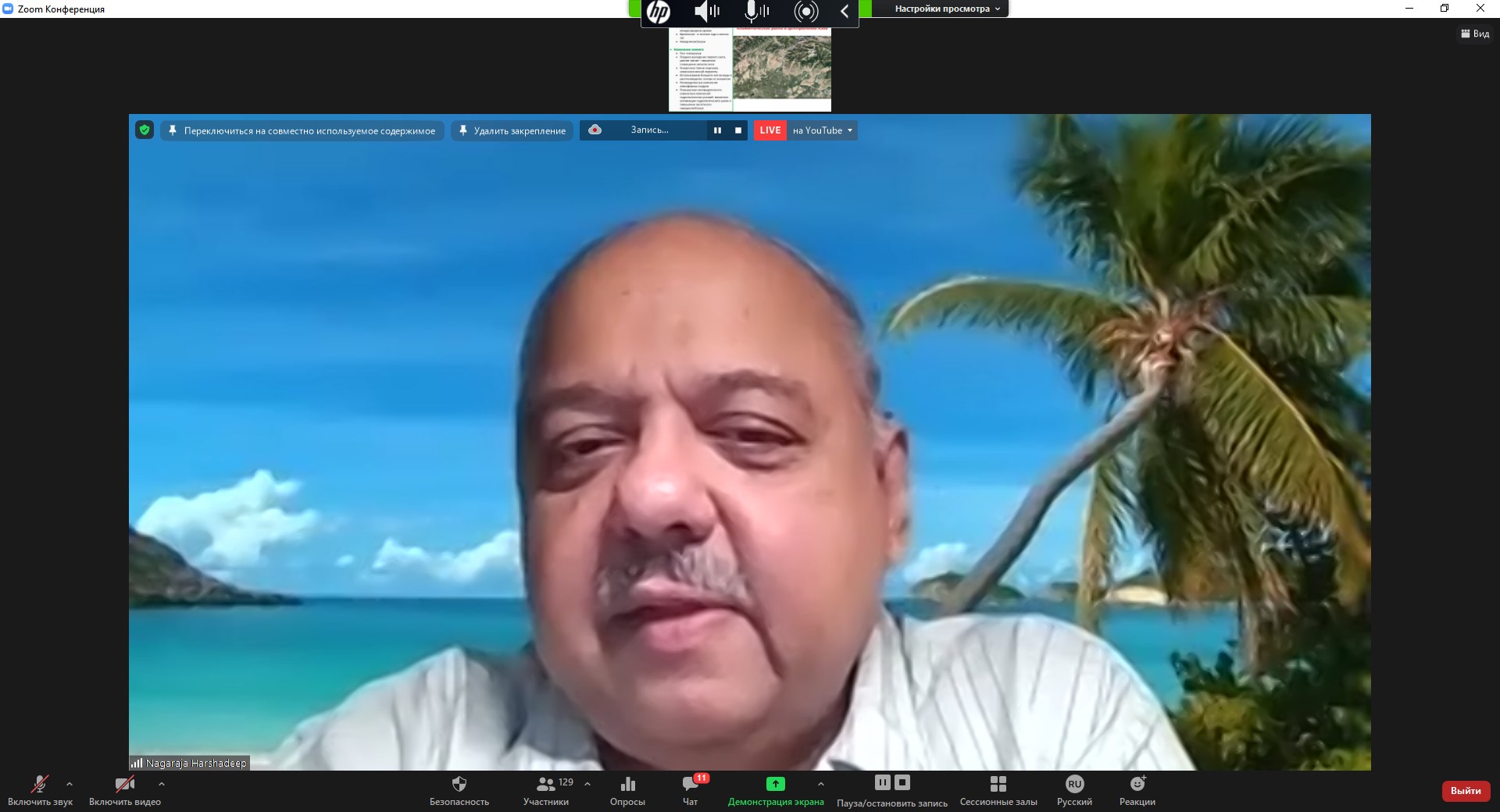
Within the framework of the thematic session of the third day of CACCC-2020, Dr. Nagaraja Harshadeep, Global Lead for Disruptive Technology at the World Bank, made the presentation "Modern Climate Data and Analytical Services". In his speech, Mr. Harshadeep noted that climatic risks are associated with various factors of climate change, such as rising temperature, melting glaciers, climate change impacts on permafrost, changes in precipitation, hydrological regime of rivers, etc. Accordingly, a wide range of data is necessary to make decisions on climate change and it requires a cross-sectoral vision of the space in which climate change is happening. He also noted that as disruptive technology new ways of collecting data from the ground and processing data much faster, new ways by which end-users receive information, new ways of connecting stakeholders together. Simultaneously, certain types of information become outdated and should be out, for example, paper-based information, databases used from one computer, secret information, etc. Mr. Harshadeep showed the participants examples of modern sources of information and approaches to work with them. This applies to the active use of open database portals, cloud-based services, information visualization, real-time data, etc.

Non-governmental organizations play an essential role in climate action by ensuring transparency and public participation, monitoring the implementation of countries' commitments as well as they conduct a great number of public climate initiatives. NGO climate networks provide an opportunity for their members to exchange information, carry out joint actions and initiatives at the global, regional and national levels. The CAMP4ASB project assists with the development and activities of the Regional Network of Civil Society Organizations of Central Asia (RNCSO).
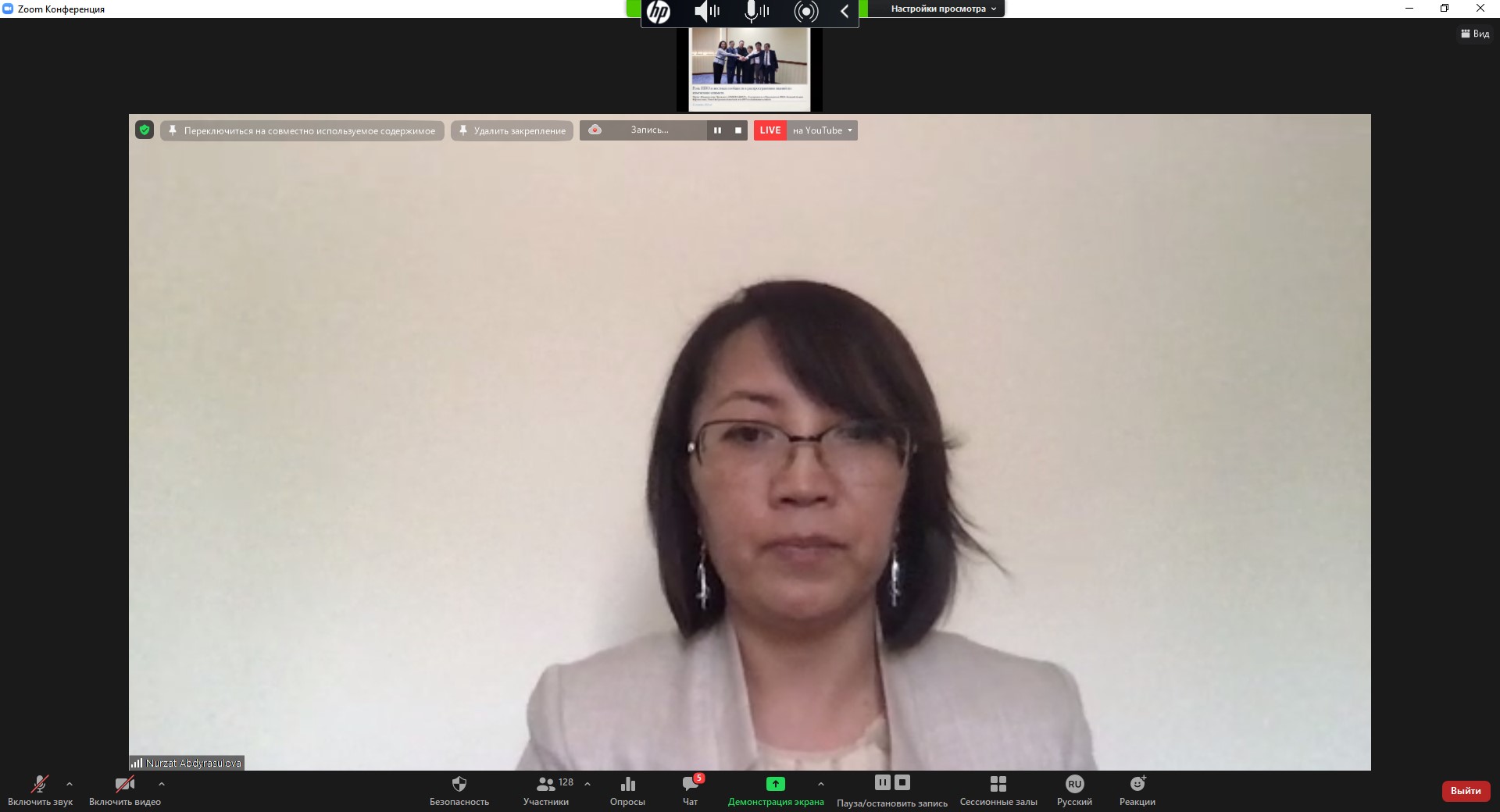
During the thematic session of the second day of the conference, a participant of the RNCSO, Director of the UNISON Group, Ms. Nurzat Abdyrasylova, presented "The role of NGOs and local communities in spreading climate change-related information". In her speech, Ms. Abdyrasylova noted that the Regional Climate Network of Civil Society Organizations of Central Asia continues to develop. She also highlighted the social consequences of climate change, such as worsening farming conditions, widening the gap between wealthiness and poverty, gender inequality. Ms. Abdyrasylova spoke about the vital role of NGOs in raising public awareness on climate change issues. She gave examples from Central Asian countries, when NGO participation led to increased government attention to the green economy, climate change and adaptation to it, promotion of renewable energy.
In the course of further discussion on climate-related information, CACCC 2020 participants also touched upon the following issues:
· use of open climate data portals for better decision-making by government agencies;
· opportunities and approaches to raise awareness among farmers on climate change issues;
· further development of the Central Asian Climate Information Platform and access to local climate data;
· availability of data for assessing vulnerability to climate change of different territories, countries, regions.


Based on the results of the second day of the conference, Ms. Saltanat Zhakenova, CAREC / CAMP4ASB, summed up the results and emphasized the following key messages:
· Today, a number of platforms and networks exists that are used to disseminate and receive information on climate change for various target audiences; at the same time, there is a need to pay special attention to end-users of such platforms, including farmers and the local community and consider their needs.
· There is a need to use all sources of information on climate change, including references to open sources, which are available in the form of official statistics, registries and databases (UN FCCC, IPCC, etc.) Given our today’s reality caused by the pandemic and activation of online platforms and resources, such a suggestion seems to be reasonable.
· The Regional Network of Civil Society Organizations on Climate Change (RNCSO) is an important driver in dissemination of information and knowledge on climate change. Therefore, there is a need to consider their capacity in implementing regional climate initiatives in the long run.
The presentations of the CACCC-2020 speakers can be found at the following link: http://gofile.me/3xIiD/hId9gulpD
Climate Adaptation and Mitigation Program for Aral Sea Basin or CAMP4ASB is implemented by CAREC and financed by the World Bank. Project aims to enhance regionally coordinated access to improved climate change knowledge services for key stakeholders (e.g., policy makers, communities, and civil society) in participating Central Asian countries as well as to increased investments and capacity building that, combined, will address climate challenges common to these countries.CAMP4ASB is implemented in Kazakhstan, Tajikistan, Turkmenistan and Uzbekistan during the period from 2016 to 2021.


